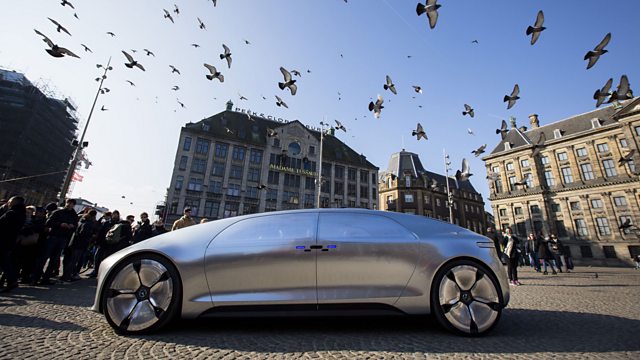Driverless cars
Self-driving cars are on their way and the first fatality occurred just recently – which is worrying for those designing the cars. But the hope is that one day journeys will be safer, faster and more environmentally friendly. But what about the psychology? How will other drivers, cyclists and pedestrians react to coming across a car that’s driving itself? Will they be more wary, or perhaps less careful, believing that in the end the driverless car will do everything it can to avoid a collision?
The first UK trials that the public can take part in are just starting in an outdoor lab in London. The research project called Gateway offers people the chance to ride in a driverless vehicle – to see how other road users interact with them.
Claudia Hammond went for a drive in a self-driving simulator at the Transport Research Laboratory in Surrey, with the Chief Scientist Dr Alan Stevens.
Photo: Getty Images
Duration:
More clips from Health Check
-
![]()
The mental health impact of abortion restrictions
Duration: 04:53
-
![]()
Doctor turned author on writing his memoir
Duration: 02:52
-
![]()
Covid: 'I've been shielding from my family for almost 2 years'
Duration: 06:26
-
![]()
Long Covid: What we do and don't know
Duration: 08:49






